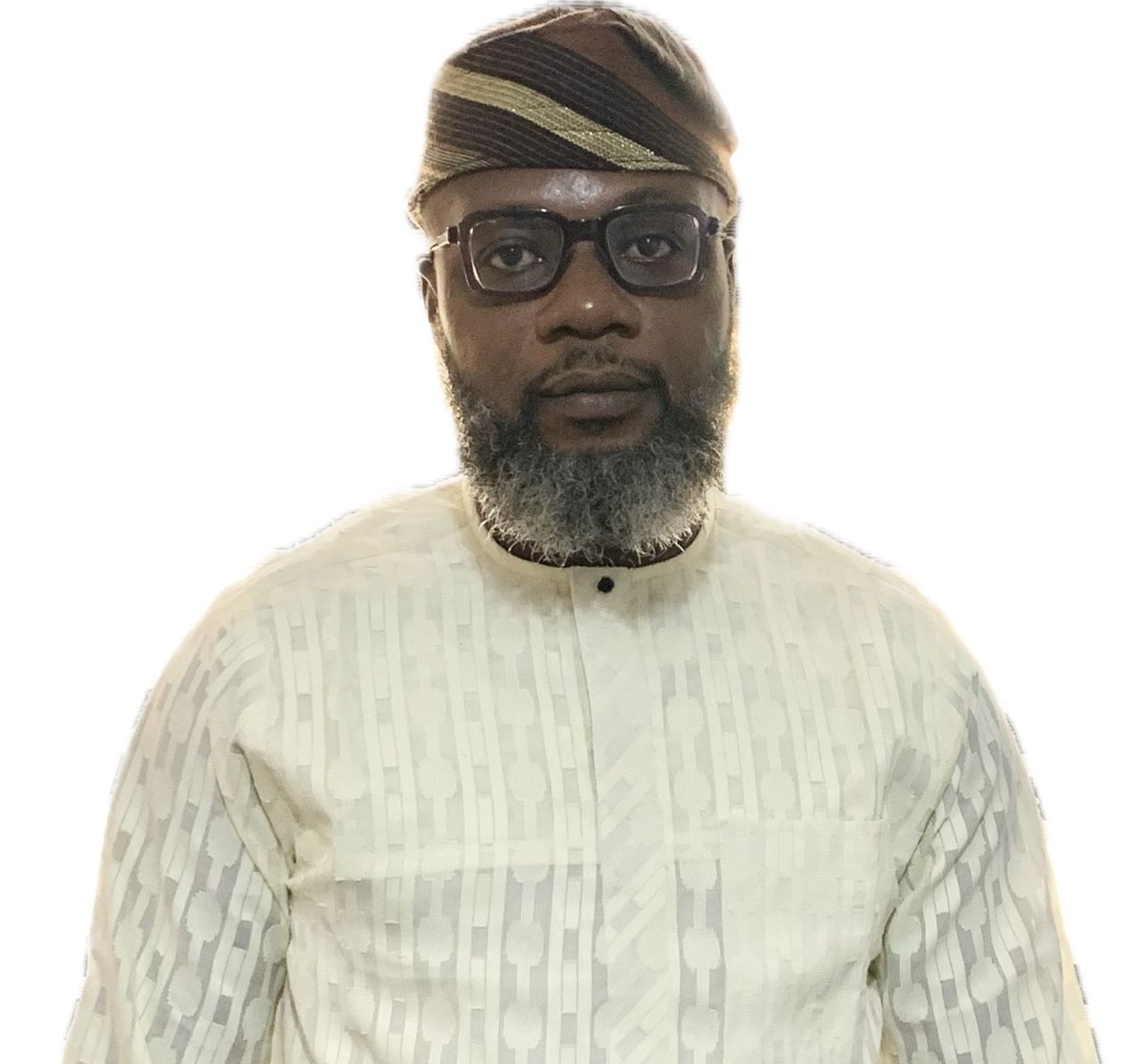WHEN POWER MET PROTOCOL: THE WIKE–YERIMA ENCOUNTER By Olaitan Adesina

WHEN POWER MET PROTOCOL: THE WIKE–YERIMA ENCOUNTER
By Olaitan Adesina

In Nigeria, public drama is both a coping mechanism and a spectator sport, and power often feels the need to perform. It rarely walks in quietly. It prefers a convoy, a siren, and a camera crew. So when Nyesom Wike, Nigeria’s Minister of the Federal Capital Territory, confronted a young naval officer guarding a property reportedly belonging to a former Chief of Naval Staff, Vice Admiral Awwal Zubairu Gambo (rtd), the script practically wrote itself.
It was the kind of viral moment that makes one wonder if popcorn and coke shouldn’t be free. A powerful minister barking at a soldier, a composed officer holding his ground, and a crowd of officials and bodyguards caught between confusion and disbelief. In that brief, tense exchange, the layers of Nigerian power were peeled open for the world to see. It revealed arrogance on one side and discipline on the other.
To the casual observer, it looked like another classic “do you know who I am?” episode. But underneath the noise lies a far deeper misunderstanding about how the Nigerian military actually operates. The Armed Forces do not run on emotions, titles, or intimidation. They run on hierarchy, structure, and an unbreakable chain of command. It is a principle that has kept the institution standing for almost a century even as the political class keeps wobbling.
Even the Minister of Defence, the supposed civilian head of the military, cannot wake up one morning, point at a soldier, and say, “You there, stand down!” It doesn’t work that way. Orders in the military travel like electricity through the proper wires. The Defence Minister communicates with the Chief of Defence Staff (CDS). The CDS gives orders to the relevant Service Chief, in this case, the Chief of Naval Staff (CNS). Only then does an order reach the junior ranks through their commanding officers.
That’s not bureaucracy; that’s military DNA.
And in this particular instance, General Oluyede, the CDS, was reportedly contacted before Wike arrived at the property. That call alone should have been enough to clarify the situation. The property belongs to a former Chief of Naval Staff. Once a former service chief’s security detail is stationed somewhere, their duty is clear: protect the man, his family, and yes, his properties.
Lieutenant A.M. Yerima was doing exactly that. He was not defying authority, he was fulfilling a lawful duty. But Wike, whose political bravado has been known to make grown men forget their names, likely expected instant compliance. Instead, he met a wall of calm, polite firmness.
And when Yerima uttered the now-famous line, “I am not a fool, sir”, it was as though Wike’s pride had been stabbed in the heart with a polite dagger.
It was not an insult. It was a statement of self-respect. It was a soldier reminding a civilian leader that duty is not a matter of personal ego, but of institutional loyalty. Wike was not just facing a naval officer; he was facing the entire weight of military protocol. And that’s the one thing Nigerian politicians consistently underestimate.
Here’s what many do not realize: Vice Admiral Gambo belongs to the 36th Regular Course of the Nigerian Defence Academy, while General Oluyede, the current CDS, is from the 39th. In ordinary life, that’s just three years apart. In military culture, however, that’s an entire generation.
Even if General Oluyede became a Field Marshal tomorrow, he would still salute Vice Admiral Gambo. Military seniority is not like a political appointment. It is permanent, irreversible, and backed by decades of tradition. So when Wike imagined he could simply “order” the CDS to command his senior, he might as well have been trying to stop the Atlantic Ocean with a heap of beach sand.
The Nigerian military may tolerate civilian oversight, but it does not suffer ignorance gladly. Protocol is their religion, and rank is their sacred scripture.
What makes this episode particularly instructive is how it revealed our national obsession with age and titles. When Wike dismissed Yerima as a “small boy,” he wasn’t just being condescending. He was acting out a common Nigerian pathology.
We are a country that confuses grey hair with wisdom and loudness with authority. A people who still measure intelligence by how much deference you can extract from others. Our politics mirrors our living rooms: the older man is always right, even when he is embarrassingly wrong.
Wike’s outburst was a symptom of that disease. He assumed that by virtue of his age, office, and decibel level, the young naval officer would fold. But Yerima stood firm with the composure of a monk and the discipline of a man who knows his place in the order of things. He neither raised his voice nor traded insults. He simply did his job.
And in that simplicity lay a quiet revolution, a reminder that power without restraint is just noise.
Nigeria’s political class has long thrived on intimidation. The louder you shout, the more powerful you seem. From motorcades that bully traffic to security escorts that treat sirens like birthrights, the entire political theater depends on reminding everyone else of their smallness.
But power, real power, does not shout. It whispers and is obeyed. The military understands this instinctively, which is why it prizes discipline over display. Politicians, on the other hand, mistake fear for respect. They believe reverence can be extracted by force, and when it doesn’t work, they throw tantrums.
That day, Wike threw one. Yerima didn’t flinch.
It was a short exchange, but in it was a profound lesson: civility can be stronger than command, and silence can be more intimidating than noise.
The incident was also symbolic of the wider tension between Nigeria’s political and military establishments. These are two systems that claim to serve the same country but operate on entirely different logics.
The politician’s world is one of expediency and personal interest. Rules are flexible, loyalty is transactional, and the loudest man usually wins. The military’s world, at least in theory, is one of order, hierarchy, and institutional discipline. Loyalty flows upward through ranks, not sideways through influence.
When these two systems collide, sparks fly. Wike versus Yerima was one such spark.
Let’s be honest: if Yerima had caved that day, Wike would have strutted away feeling victorious. The crowd would have cheered, and the story would have been forgotten by nightfall. Instead, a junior officer’s professionalism turned a routine abuse of power into a national conversation.
That’s the irony. Wike’s attempt at dominance ended up amplifying the very thing he wanted to suppress: respect for process.
The Nigerian military, for all its faults (and there are many), still understands one crucial thing that our political elite have long forgotten—the chain of command exists to protect order, not ego. It is the thin line between authority and anarchy. Once broken, everything collapses.
Lieutenant Yerima didn’t just stand up to Wike; he stood up for that line.
The beauty of that moment was not in the confrontation itself but in the restraint. In a country where everyone wants to go viral for shouting, a young man went viral for standing still.
His calmness embarrassed arrogance, his silence drowned out noise, and his composure exposed the minister’s temper for what it truly was—insecurity masquerading as confidence.
The military, to its credit, didn’t overreact. It defended its own quietly, reaffirming that the officer did no wrong. That in itself was another small victory for institutional integrity in a nation that rarely rewards it.
What can Nigeria learn from the Wike–Yerima episode? A few simple truths:
First, power is not performance. Authority exercised without self-restraint is merely a louder form of weakness.
Second, respect cannot be demanded, it must be earned. And often, the people who truly deserve it are those who speak the least.
Third, the military’s insistence on procedure, while sometimes frustrating to civilians, is precisely what keeps chaos at bay. If every uniformed officer took orders directly from politicians, Nigeria would have collapsed long ago.
Finally, and perhaps most importantly, young people like Lieutenant Yerima represent the possibility of a different Nigeria. A Nigeria that values professionalism over sycophancy, duty over drama, and dignity over noise.
In the end, Wike shouted. Yerima stood. And in that brief silence between command and defiance, order quietly won.
The confrontation might fade from the news cycle, but its symbolism will linger. It reminded Nigerians that discipline is not timidity, and calm is not weakness. It showed that respect for structure is not servility. It is, in fact, the highest form of patriotism.
Because if everyone in public office behaved like Nyesom Wike, and everyone in uniform behaved like Lieutenant A.M. Yerima, Nigeria might finally begin to look like a country that takes itself seriously.
Until then, we will keep buying popcorn.

Olaitan Adesina is a writer, poet, and social commentator. He writes from Akure, Nigeria




